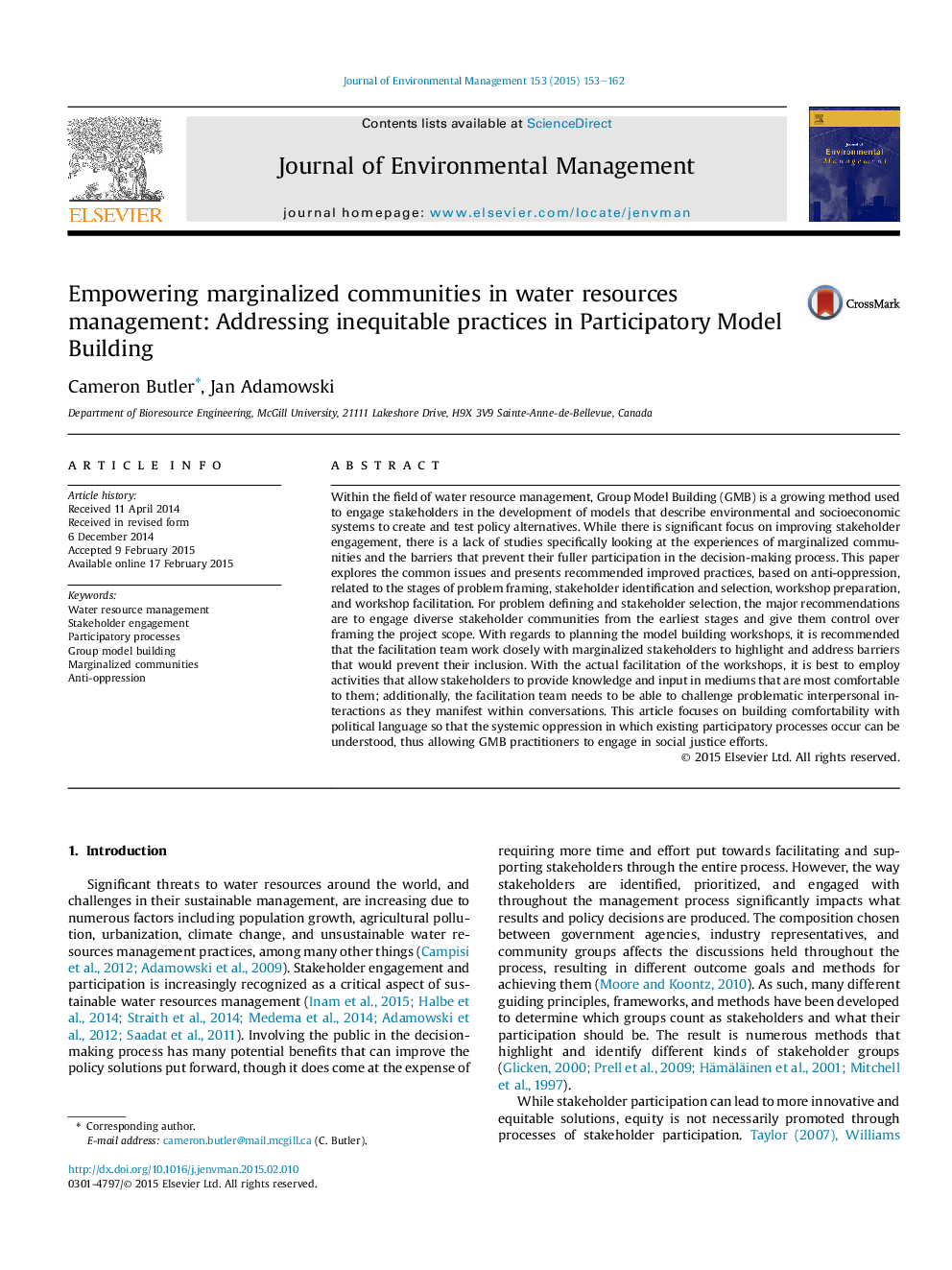| Article ID | Journal | Published Year | Pages | File Type |
|---|---|---|---|---|
| 1055632 | Journal of Environmental Management | 2015 | 10 Pages |
•Accessibility barriers hinder the participation of marginalized stakeholders.•The general public is comprised of many different social groups with unique needs.•Group model building sessions should be organized with community members.•Workshop facilitators must work to ensure a safer space for participants.•Diverse modelling tools allow for greater stakeholder participation and input.
Within the field of water resource management, Group Model Building (GMB) is a growing method used to engage stakeholders in the development of models that describe environmental and socioeconomic systems to create and test policy alternatives. While there is significant focus on improving stakeholder engagement, there is a lack of studies specifically looking at the experiences of marginalized communities and the barriers that prevent their fuller participation in the decision-making process. This paper explores the common issues and presents recommended improved practices, based on anti-oppression, related to the stages of problem framing, stakeholder identification and selection, workshop preparation, and workshop facilitation. For problem defining and stakeholder selection, the major recommendations are to engage diverse stakeholder communities from the earliest stages and give them control over framing the project scope. With regards to planning the model building workshops, it is recommended that the facilitation team work closely with marginalized stakeholders to highlight and address barriers that would prevent their inclusion. With the actual facilitation of the workshops, it is best to employ activities that allow stakeholders to provide knowledge and input in mediums that are most comfortable to them; additionally, the facilitation team needs to be able to challenge problematic interpersonal interactions as they manifest within conversations. This article focuses on building comfortability with political language so that the systemic oppression in which existing participatory processes occur can be understood, thus allowing GMB practitioners to engage in social justice efforts.
